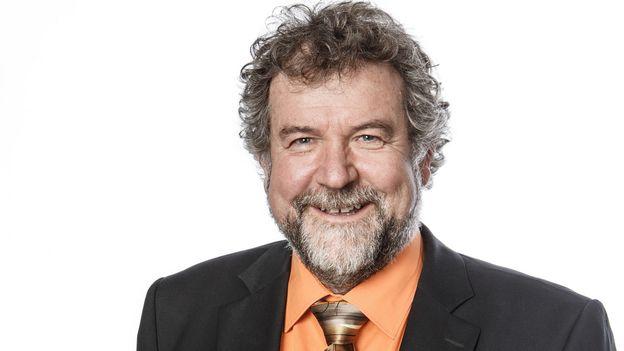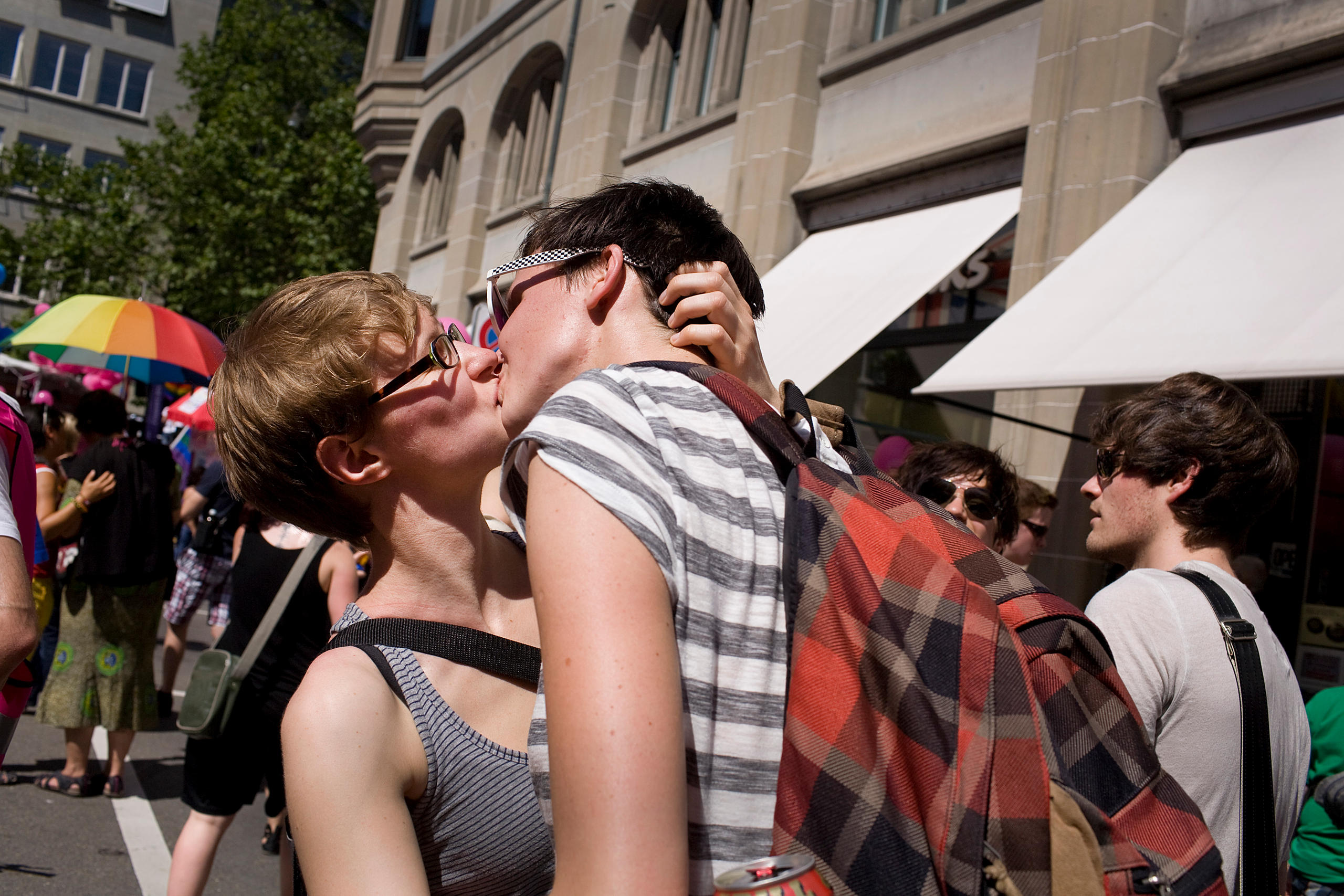Why one party is opposing the criminalisation of homophobia (original) (raw)

The small conservative group is not backed by any other Swiss political party. Keystone
Last year, parliament approved legislation to criminalise homophobia. Now, a small ultra-conservative political party have decided to launch a referendum against the law. Party representative Marc Früh explains why.
This content was published on January 10, 2019 - 12:40
5 minutes

Journalist based in Bern. I am particularly interested in topics about society, politics and social media. Previously I worked in regional media, for the newspaper Journal du Jura and Radio Jura bernois.
- Deutsch
Herr Früh, ist Ihre Partei homophob? - Français
Monsieur Früh, votre parti est-il homophobe? Original - Italiano
Signor Früh, il suo partito è omofobo? - Español
Sr. Früh, ¿su partido es homofóbico? - Português
Caro senhor Früh, o seu partido é homofóbico?
The legislation approved by parliament in December amounts to an extension of anti-racism norms to encompass discrimination on the grounds of sexual orientation: a legal modification that allows for homophobia to be prosecuted just like racism, or anti-Semitism.
For the rightwing Federal Democratic Union (see infobox), however, the new law is an attack on freedom of expression. Claiming that “valid opinions will in future be criminalised,” the group has decided (without the support of any other parties) to launch a referendum against it.
The Federal Democratic Union
The Christian, ultra-conservative party describes itself as the “party of ethical values”, founded on “the Bible and the world of God”. It occupies a marginal space in the Swiss political landscape: it has just 3,000 members and no parliamentary representation. In the last federal elections, the FDU won 1.2% of the national vote.
The party has nevertheless managed several times to force votes on societal themes such as family and abortion. In 2004, the party succeeded in gathering 67,000 signatures to bring to referendum a law allowing same-sex partnerships; the law was eventually accepted. In 2016, a campaign to gather signatures to oppose the reform of adoption laws failed.
Despite its size and lack of political support, FDU representative Marc Früh nevertheless thinks that the 50,000 signatures needed to force the referendum are achievable; he also maintains that his party is not homophobic.
swissinfo.ch: Do you believe that it is legitimate to express homophobic opinions?
Marc Früh: We do not want laws that shut down discussion. The question of homophobia, as well as LGBTIQ issues, should be open to free debate, without being attacked, just like debates about refugees or the disabled. I refuse to live in a society where you are criminalised because you express an opinion.
The FDU is committed to a civil morality, ethics, and moral respect for each and every person. To achieve this, education is needed – not laws to protect all types of personalities. There is no one category of people which deserves protection more than others. A homosexual has the same right to respect as a disabled person, an elderly person, or a refugee.

Marc Früh of the Federal Democratic Union. rts
swissinfo.ch: By your logic, shouldn’t we just remove the entire anti-racism legislation so that everyone is in the same boat?
M.F.: The anti-racism law was created because abuses led to a genocide against Jews. I think this is different from the question of sexual orientation.
swissinfo.ch: So, for you, minorities within the LGBTIQ community are not discriminated against and don’t need particular protection?
M.F.: I have never noticed that these people are particularly targeted. What I’ve seen is that people of all stripes are derided. There is no need for one category of people to be super-protected.
swissinfo.ch: Is the FDU a homophobic party?
M.F.: It’s dishonest to assume that. The text of our referendum is very clear. We want citizens to be able to have their say on this issue, because the new law reduces freedom of expression. We have never taken an aggressive stance towards homosexuality or any other movement. However, it’s clear that we see certain things differently.
More

More
Recognising diverse sexual identities and experiences
This content was published on Jul 27, 2017 Queer, pansexual or asexual: young people today use new terms to define their sexual orientation and gender identity.
Read more: Recognising diverse sexual identities and experiences
swissinfo.ch: What are these different opinions that you want to be able to express?
M.F.: I’m the father of five children; I have nine grandchildren. Everything is going well. But I think that society should focus more on real problems, for example mothers who give birth and then sometimes find themselves in dire situations. The question of sexual orientation is about somebody making a choice, then living with it. If I am a Christian, I take responsibility for it. If I am a painter, I accept it and take responsibility for it.
swissinfo.ch: One of the big issues on the political agenda in the coming years will be same-sex marriage. Are you also going to campaign against this?
M.F.: Marriage is the union of a man and a woman, leading to having children. This was defined by the creator, not something invented by man. The FDU will campaign to defend this vision.
“Preserving the right to insult homosexuals”
The referendum launched by the FDU has already spurred reactions. Interviewed by the Tribune de Genève newspaper, social democrat parliamentarian Mathias Reynard, who instigated the new legislation, said that it was hardly surprising that some would oppose what amounts to “considerable progress for Swiss people”. However, he said, “I have trouble understanding how you could dedicate so much time, resources, and energy to trying to preserve the right to insult homosexuals”.
Meanwhile, on social media, an interview with Sylvie Guignard-Ruffieux, vice president of the FDU’s Geneva branch, also provoked outrage. Guignard-Ruffieux said she feared that it would no longer be possible to speak of those “turned away from homosexuality”; sexual orientation, she claimed, was linked to circumstances, education, environment, even to physical types. LGBTIQ associations condemned the statements. “A bunch of idiotic malice,” said Pascal Messerli, president of Dialogai, to the 20 Minutes newspaper.
Translated from French /dos, swissinfo.ch
Articles in this story
Read more
![]()
More
Marriage
People over the age of 18 are entitled to get married in Switzerland. This includes same-sex couples.
